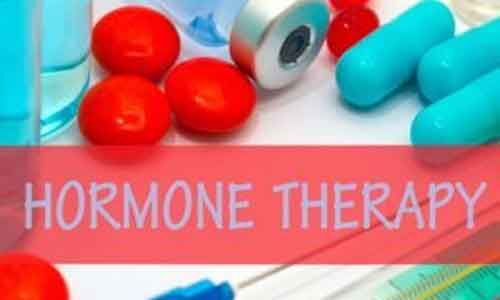- Home
- Medical news & Guidelines
- Anesthesiology
- Cardiology and CTVS
- Critical Care
- Dentistry
- Dermatology
- Diabetes and Endocrinology
- ENT
- Gastroenterology
- Medicine
- Nephrology
- Neurology
- Obstretics-Gynaecology
- Oncology
- Ophthalmology
- Orthopaedics
- Pediatrics-Neonatology
- Psychiatry
- Pulmonology
- Radiology
- Surgery
- Urology
- Laboratory Medicine
- Diet
- Nursing
- Paramedical
- Physiotherapy
- Health news
- Fact Check
- Bone Health Fact Check
- Brain Health Fact Check
- Cancer Related Fact Check
- Child Care Fact Check
- Dental and oral health fact check
- Diabetes and metabolic health fact check
- Diet and Nutrition Fact Check
- Eye and ENT Care Fact Check
- Fitness fact check
- Gut health fact check
- Heart health fact check
- Kidney health fact check
- Medical education fact check
- Men's health fact check
- Respiratory fact check
- Skin and hair care fact check
- Vaccine and Immunization fact check
- Women's health fact check
- AYUSH
- State News
- Andaman and Nicobar Islands
- Andhra Pradesh
- Arunachal Pradesh
- Assam
- Bihar
- Chandigarh
- Chattisgarh
- Dadra and Nagar Haveli
- Daman and Diu
- Delhi
- Goa
- Gujarat
- Haryana
- Himachal Pradesh
- Jammu & Kashmir
- Jharkhand
- Karnataka
- Kerala
- Ladakh
- Lakshadweep
- Madhya Pradesh
- Maharashtra
- Manipur
- Meghalaya
- Mizoram
- Nagaland
- Odisha
- Puducherry
- Punjab
- Rajasthan
- Sikkim
- Tamil Nadu
- Telangana
- Tripura
- Uttar Pradesh
- Uttrakhand
- West Bengal
- Medical Education
- Industry
Different hormone therapies affect cognitive function differently

CLEVELAND, Ohio - Sex hormones influence the structure and function of the brain, but little is known about the effect of hormone therapies (HT) on changes in the brain during menopause. A new study shows smaller increases in structural brain changes related to aging were associated with hormone-level changes from transdermal estradiol or oral conjugated equine estrogen.
Study results are published online in Menopause, the journal of The North American Menopause Society (NAMS).
Age-related changes in learning and memory have been associated with changes in the structure of the brain. Visually, such structural changes can be seen through magnetic resonance imaging in what appear as bright white spots in the brain (known as white matter hyperintensities). These changes in brain structure and in cognitive function may, in part, be related to the lower estrogen levels resulting from menopause.
In a new study involving participants from the Kronos Early Estrogen Prevention Study, researchers investigated the link between the changes in hormone levels (from both the brain and the ovary) with different HT formulations and structural changes in the brain associated with aging compared with placebo. They found that smaller increases in these age-related structural brain changes were linked to decreases in follicle-stimulating hormone in women taking transdermal estradiol and higher levels of estrone (a particular form of estrogen commonly found in postmenopausal women) in women in both HT groups (transdermal estradiol and oral conjugated equine estrogens).
Researchers theorized that the differences may likely be in how the various HT formulations are metabolized. Although an oral administration is further metabolized in the liver, the transdermal hormones are absorbed directly into the peripheral circulation before being metabolized in the liver. Additional research is needed to evaluate the effect of different doses of various oral and transdermal hormones on the change in white matter hyperintensities.
Study results appear in the article "Associations of pituitary-ovarian hormones and white matter hyperintensities in recently menopausal women using hormone therapy."
"This study found that pituitary and ovarian hormone levels are linked to structural brain changes associated with aging in recently menopausal women using hormone therapy and that there are differences in these associations depending on the hormone therapy formulation used. Additional study is needed to determine whether dosages of hormone therapy also affect these associations and to determine what the clinical implications of these findings are for menopausal women," says Dr. Stephanie Faubion, NAMS medical director.
Hina Zahid Joined Medical Dialogue in 2017 with a passion to work as a Reporter. She coordinates with various national and international journals and association and covers all the stories related to Medical guidelines, Medical Journals, rare medical surgeries as well as all the updates in the medical field. Email: editorial@medicaldialogues.in. Contact no. 011-43720751
Dr Kamal Kant Kohli-MBBS, DTCD- a chest specialist with more than 30 years of practice and a flair for writing clinical articles, Dr Kamal Kant Kohli joined Medical Dialogues as a Chief Editor of Medical News. Besides writing articles, as an editor, he proofreads and verifies all the medical content published on Medical Dialogues including those coming from journals, studies,medical conferences,guidelines etc. Email: drkohli@medicaldialogues.in. Contact no. 011-43720751


